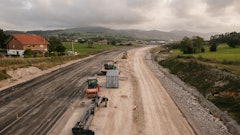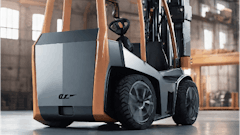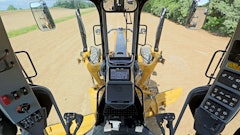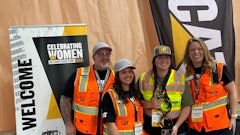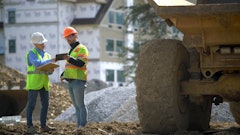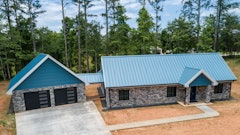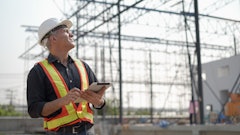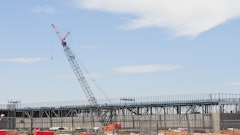The shelf life of technology continues to shorten as advancements arrive by leaps and bounds in all areas of life. Rental management software is no exception. Following is a discussion among leaders of some of the most prominent software suppliers in the rental industry about changes we can expect to see in the ways we do business.
What areas of an equipment rental business stand to benefit the most from advancements in management software over the long term?
Patrice Boivin, Orion Software: We believe management software will be operating on touch screens on mobile devices and at the point of rental. The mouse will gradually be eliminated. Software providers will develop applications that are versatile and adapt to the device used. In the near future, the applications will all be installed in the cloud and the devices used will define how the software interface behaves.
Also, regular customers of rental operations will all have access to a web portal to make reservations, sign contracts and view transactions online. The portal will come with the application as one solution, fully integrated. Rental operators will implement portals customized for each customer in order to provide them an experience that matches the relationship they have. For instance, large construction companies will order their rentals required in the field on a mobile device with their preferred products and prices.
Ray Bonestroo, Genisys: What areas of an equipment rental business stand to benefit the most from advancements in management software will probably be more determined by the capabilities of the hardware available at the time (as the mobile devices get more powerful, become even more durable, etc).
Clark Haley, BCS ProSoft: Mobile computing will continue to lead the charge in advancements in management software. As technology continues to evolve, software publishers will build more mobile technology into their solutions. The end goal is being able perform any task from any device, anytime, and from anywhere.
Most systems today are reactionary, requiring someone to take action when a condition or issue arises. Technological advancements will build more proactive capabilities into the software, allowing the software to monitor, notify and adjust as needed, based upon system activity.
Rob Ross, Alert Management Systems: The mobile revolution continues to drive trends in our industry, from the use of tablets and smart phones, to 'paperless' systems for document-handling and signature capture, to transportation and equipment tracking efficiencies.
Michael Saint, Corporate Services: There will be significant benefit for all aspects of an equipment rental business, such as gathering of utilization data by field personnel, faster and more accurate repair and maintenance status, streamlining of billing information and receivables processing and faster, more accurate reporting for management.
The changes we'll most likely see will be in the expansion of mobile data delivery services designed to gather information on equipment condition, location, movement and operation with less human intervention. Personalized data delivery strategies will continue to improve the ability of management personnel to tailor their feedback needs.
J.J. Shea, Solutions by Computer: Customer service and dispatch are examples of areas that have already seen a lot of advancements. The more dramatic changes going forward are likely to be in managing rates with more fluidity, supporting inventory purchase decisions, and overall fleet management. We also believe that RFID will have a greater role in rental operations after a slow start in the industry.
The caveat with all of this is that it can be tricky to predict the future of computing. Five years is a long time when technology is changing at the speed of light. Even existing technology may be off the radar until it’s repurposed for rental operations. Who would have predicted that RFID tags, once used to track returning aircraft in World War II, would have rental inventory tracking applications?
Rod Theoret, Texada: Hard to see past two years in the future, but in the areas of inventory management, we can see some significant areas of improvement, such as the evolution of RFID technology. RFID has been out for 8 to 10 years, but so far it hasn't been very reliable. Now we're seeing advancements within the RFID industry, using different technologies such as ultrasound and infrared to make it more possible for users to be 100 percent confident with it. Another area of advancement is the ability of software systems to integrate with leading technologies such as Google Glass.
Wayne Harris, Point-of-Rental: Knowledge of where equipment is in real-time is important. The price for GPS tracking of equipment and trucks has fallen substantially in the last number of years, making it viable to track large equipment and delivery/service trucks. As that price continues to fall, it will make more sense to track smaller dollar value equipment. Also, as the world becomes more untethered, people expect to do more of their business wherever they are so mobile products can make the lines at the front counter obsolete.
How do you see fleet logistics changing in the future and what role will software play?
Bonestroo: I think GPS will be way more prevalent and will become less expensive per unit to install and therefore more attractive to the average rental company; as they can then tie in the GPS software with their rental management software to use this for scheduled maintenance, equipment movement, shutting down equipment for non-payment, etc.
Haley: Telematics systems will have the most influence on changes related to fleet logistics. The technology is available today but there is lots of room for growth as more companies adopt telematics into their operations. More importantly, integration with back office accounting and/or fleet management systems will help fuel this growth further. This integration will help reduce or eliminate the time required for manual data entry related to the usage of a piece of equipment. A properly integrated telematics/back office system will allow for immediate meter readings to be taken during the billing process so that any excess use charges can be captured as it is occurring.
Ross: Inexpensive mobile technology makes it easier to get the right equipment in the hands of your customer and to know exactly which serialized units they have. Software can offer the ability to use simple wireless bar code readers to load and unload serialized equipment, eliminating the need to select a particular unit at the front counter or to document the selection of the actual unit picked in the yard or warehouse. No specialized mobile computers, tablets, or cellphones are required. Zap it when you load it (or unload it) and all the work is done.
RFID technology, pioneered by the federal government and companies like WalMart, will eventually be cheap enough even for smaller operations. RFID uses the same premise as bar code identification only on a passive basis: No need to zap anything. Detection is instant for anything that passes in or out of the yard gates or warehouse dock.
GPS is increasingly ubiquitous, making it possible to place GPS tracking devices on smaller and less expensive equipment and to design increasingly smart telematics solutions for rental fleet management and for delivery logistics. Although some of our customers have used telematics solutions for 5-10 years (for tracking expensive semi-trailer-sized generators, for example), we are seeing the trend move down through the fleet to smaller equipment, such earthmoving equipment, heaters, smaller generators and so forth.
Saint: Fleet managers will need to rely less and less on personnel-driven procedures and will base decisions more on real-time information from sensors such as GPS and RFID devices. Software will continue to provide more accurate and timely information from a host of these devices.
Shea: Over the past several decades, software developers have paid a great deal of attention to fleet management within the rental facility: rental-ready status, late returns, preventive maintenance, inspections, etc. Now there’s an increasing focus on bringing a similar level of control to fleet management in the field. This goes beyond telemetry devices that track fleet in the field. Our belief is that fleet management will continue to evolve toward a partnership approach, using technology to gain efficiency. The rental company and its customers will both have a hand in co-managing fleet utilization and share more information over the Internet.
Theoret: Telematics is advancing for both delivery vehicles and rental assets integration. There's more interest in tracking where assets are moving, along with other metrics. There are several different telematics hardware providers out there and the question is how well are software systems able to integrate with them. Dispatching and routing efficiency is another area of innovation. Systems enable rental companies to reduce costs, leverage traffic flow re-routing with real-time driver notifications. This can reduce travel time and improve the process overall, for both rental companies and their customers.
Harris: Fleet logistics continue to fall in price both for the initial purchase of the GPS hardware required as well as the monthly service fees. This lower price point allows for even more items to be tracked via Internet based GPS units. Our software already has the capability to find location, as well as meter reading and odometer readings. We are just waiting for the pricing to come into line with the perceived value to the rental store.
Boivin: The fleet will be equipped with GPS devices integrated with real-time location reflected on a map in the rental solution. The devices will update the meter values and warn users on maintenance due. The rental solution will integrate all aspects of the logistics and the service management. So, the distributors, rental companies and the service companies will use the same application to manage all aspects and growth in each of these markets as complete providers.
Will the customer’s experience change as a result of technological innovations?
Ross: Rental businesses continue to expand the services available to their customers through their websites, including customer portal capabilities, offering direct access to customer accounts and rental documents via secure credentials.
Over time, rental companies will offer more and more customer-facing services via mobile devices, or delivered through private web portals and public websites. Mobile devices are being developed in an ever-expanding array of formats. When you think of the possibilities of products that are just around the corner, such as Google Glass, it is truly mind-boggling.
Saint: Customers of rental equipment providers will experience better service from ordering, dispatching, condition of equipment and accuracy in billing.
Shea: Customers will continue to benefit from innovations that bring them closer to the rental business. Rental customers are no different than any other consumers: they measure progress by how quickly they’re served and how efficiently they can complete a transaction to get a desired result. Rental software advancements reflect this by tying rental functions to mobile devices and e-access. Internet portals are becoming the norm as a way to do business. A lot of functions that could be considered operational – such as online payment capabilities – are actually customer service improvements.
Theoret: It's all about mobility and self-service. Customers can request equipment, contract and complete return processes all through their smart phone. It's faster, more accurate, and results in overall better service throughout the entire rental process. The process is in real-time, with less paper. It's more of a pull, rather than a push sort of process.
Harris: The world continues to go more mobile and also self-service. You can't go into a major retail store these days without seeing self-checkout stations. For the rental industry, this will be implemented as self service via the Internet. A customer wants to be able to make a reservation at midnight. They want to be able to get instructions on the floor sander at 11 p.m. They want to accomplish the task on their timetable and not the rental store's operating hours.
Boivin: Customers will see much faster response from rental companies. As new solutions offer more proactive functions to react to any changes, the fastest and more reliable companies will gain market share. Technological innovations offer online chat between employees, proactive alarms of action required, real-time location and user-friendly interfaces to improve efficiency at all levels.
Bonestroo: Customers will more towards doing more of the business via the web so that rental stores can do more business with less staffing costs (saving on phone staff that are answering routine questions that can be taken care of with better websites) and taking orders via the web on sales items, doing reservations, etc.
Haley: A customer wants to know that we will have the equipment when they need it. They need to know that it is the right tool for the job. A customer wants to know that it is in good working order. They also want to have multiple methods of accessing this information. Technology will assist in providing this information via the channels available. Instant access to information will be required.
In the shorter term, what is the next big trend to hit management software?
Theoret: Mobile applications are really where it's at. We'll also see more cloud-based and SAS deployments. We've been providing it for two years, and it's gaining more momemtum. We'll see more integration with third-party entities that specialize in various services (such as salesforce.com).
Harris: Anything mobile and anything relating to customer facing web presence. Customers want to get pricing and other information in the middle of the night. Customers want to make a reservation anytime they want. Customers want access to their account online. Customers want to manage their current equipment rentals such as calling them off rent at their convenience. Rental stores that offer these features will grab the business of the next generation.
Boivin: The combination of cloud computing and the mobility. As software is deployed on cloud and becomes available everywhere, software vendors will revisit the business processes and implement streamlined business practices. This will open the applications to mobile users such as delivery staff and salesmen. Users will be much more efficient and better informed, leading to significant improvement of customer satisfaction.
Bonestroo: I think that the mobile aspect stands to impact the rental business the most, both now and in the future. The web is already helping quite a few rental businesses in some ways, and they will move to doing more with this over time (customer portals, web stores, online reservations, etc). The mobile applications (and web portals) are already in place, if you are working with the right rental management company.
Haley: The ARA’s rental market metrics is a great start towards implementing an industry standard for measuring multiple utilization based metrics. The current metrics address the needs of equipment rental companies renting out serialized assets. It would be nice to see the metrics expand to address the needs of companies that rent non-serialized assets. Event rental and scaffolding companies are examples that would fall under the non-serialized umbrella.
Mobile technology will continue to see upticks in adoption rates. Integration with the business management software in place at each organization will help drive adoption rates upwards.
Ross: To sum it up, there will be more mobility, less paper and faster access to key information. This will allow managers to react to changes in market conditions and opportunities even faster.
Saint: Personalization of reporting and data needs for individual shop managers, equipment managers, salespersons and accounting personnel delivered via web services and personal devices will continue expanding their roles in equipment companies as they build the infrastructure and expertise to use this data.
Shea: Mobile technology is the big focus in the near-term. Rental software has made some good strides in this area, but it can take better advantage of the proliferation of mobile devices. The rental option is all about making it easy and cost effective for customers to achieve a goal they have in mind. If you can give your customers mobile access to your services, and give your employees the ability to transact business on the road, you’re leveraging the “easy” factor.
Beyond the standard rental functions, third-party functionality can be delivered to rental customers via mobile apps. For example, we recently deployed an electronic signature capture capability that’s fully integrated with our Enfinity system. It operates on any mobile device and seamlessly incorporates the customer signature into the transaction record.
FOR MORE ABOUT SOFTWARE TRENDS, VISIT FORRENTALPROS.COM






